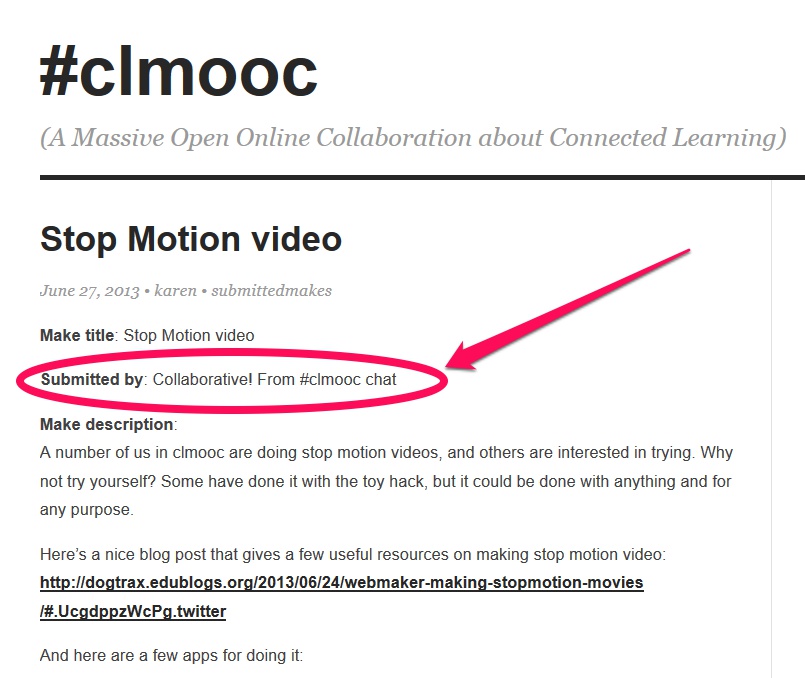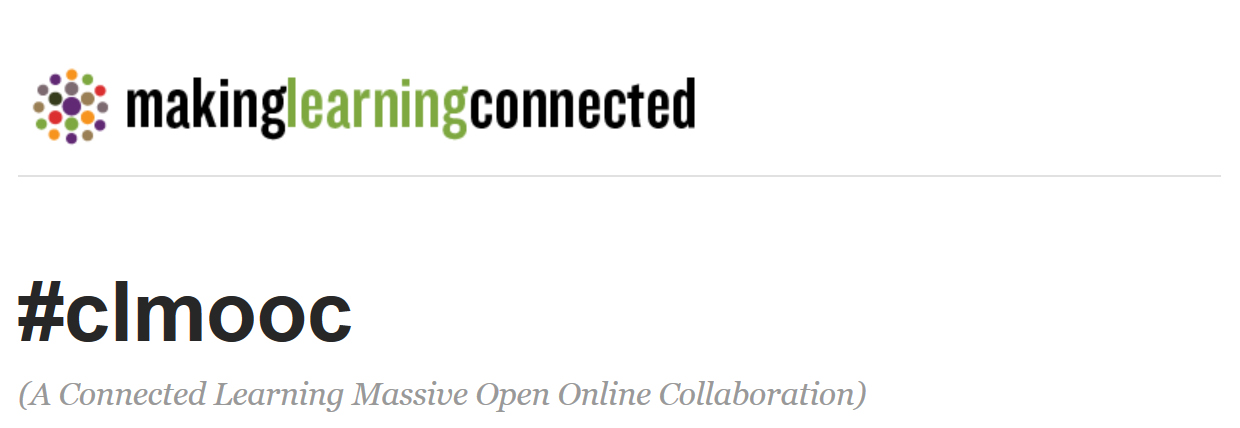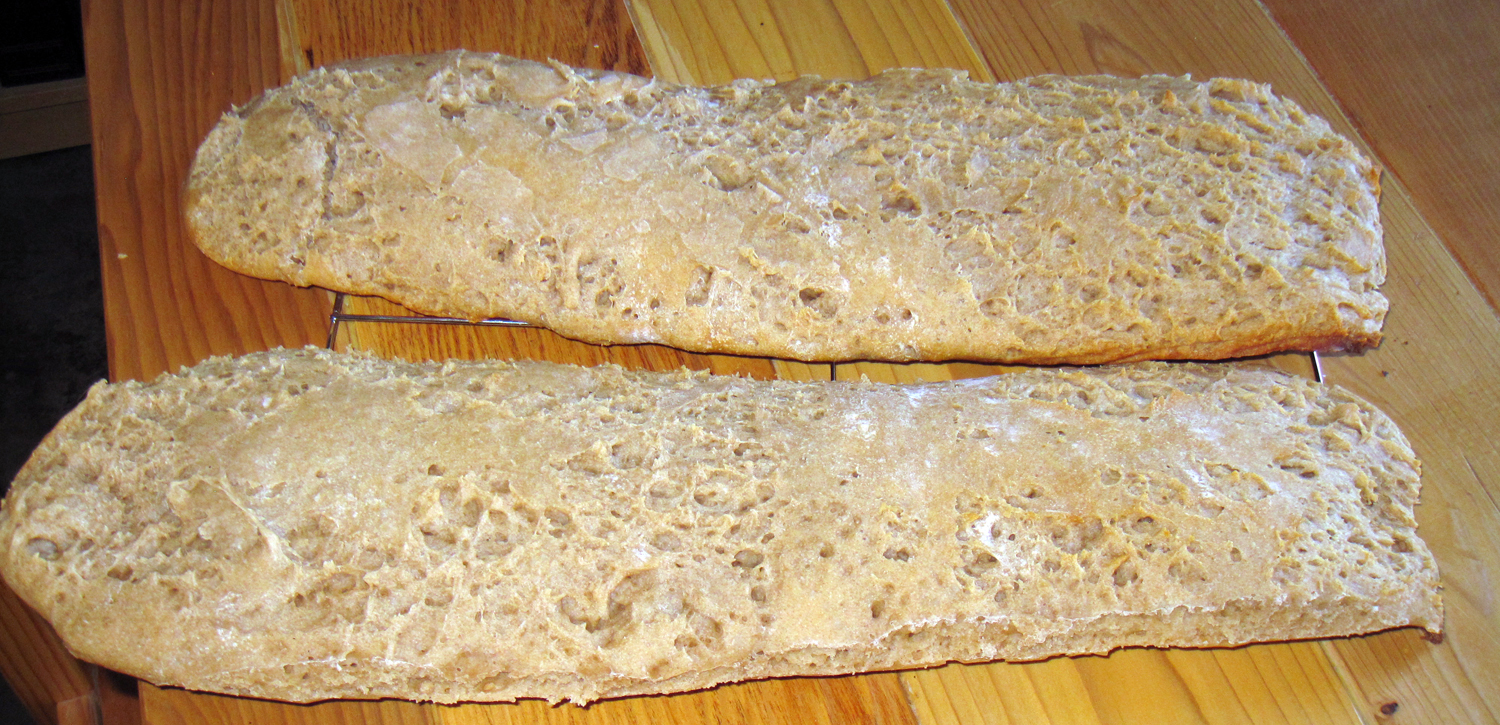This was a great week for me in #clmooc. I tried several new things: a pop-up book, Vines, and a stop motion video. (I’m compiling a personal #clmooc portfolio here.)
I’m loving the collaborative spirit of the #clmooc group. When we brainstormed a possible stop motion make during our Twitter chat on Tuesday and then I saw it appear in the Make Bank just a few minutes later submitted by “Collaborative! From #clmooc chat,” I felt a surge of joy!
As I’m reflecting on what I’ve done and learned so far, I am also thinking about what I’d like to do in the rest of #clmooc. Here are a few things:
- A Scratch “make” for the make bank
- More writing and reflecting (Notes to self: post on “academically oriented” part of connected learning; post on public narrative; post on f2f in moocs)
- Some real world makes
- Some thinking about community and how to sustain the energy and learning of this and other events throughout the future
This week Stephanie asked us to consider this quote from James Paul Gee’s The Anti-Education Era:
So where in our society is there a genuine forum for discussing big questions? Where is there a forum for answering them over the long haul? Where is there a forum for freely sharing what is discovered and people around the world test it?…Where is there a forum that can allow the “worthless” and the “not relevant” and the “not immediate” to germinate like a mutation that may go nowhere or may yet in the end save us? Where is the DNA of human innovation stored, recombined, mutated, and set loose to give rise to new birth, new ideas, new worlds, and new sorts of human beings?
For me, our own personal writings are the forum that Gee asks about. And these kinds of writings and sharings should be done in a space that we own and control. No institution-provided forum can provide the freedom to explore big questions like these as they deserve to be explored.
It’s all well and good to post on forums like Twitter, FB, and even Digital Is for these kinds of discussions, but to have them on our own spaces is to guarantee ownership, openness, and legacy. (But connections with others is crucial, and because most of our own domains don’t foster the volume of connections that other sites may, I think cross-posting links is a good idea.)
For me, this means blogging.
I love writing in general and find a great sense of fulfillment in blogging. For me, my blogging is primarily for myself — a way to think through the big questions, a place to wonder and muse out loud, a tool for trying out ideas, a forum for planning exciting new things. Of course, it’s all public and open, so others are free to draw from it if it’s useful. And when I get responses and can converse and collaborate with others, all the better.
In the past, my writing, thinking, and playing around various topics was mostly a solitary pursuit. But lately through communities like Twitter, G+, P2PU, NWP, and now #clmooc, I am becoming more connected, and my thinking has benefited.
I hope that we can continue these connections and collaborations far into the future.



